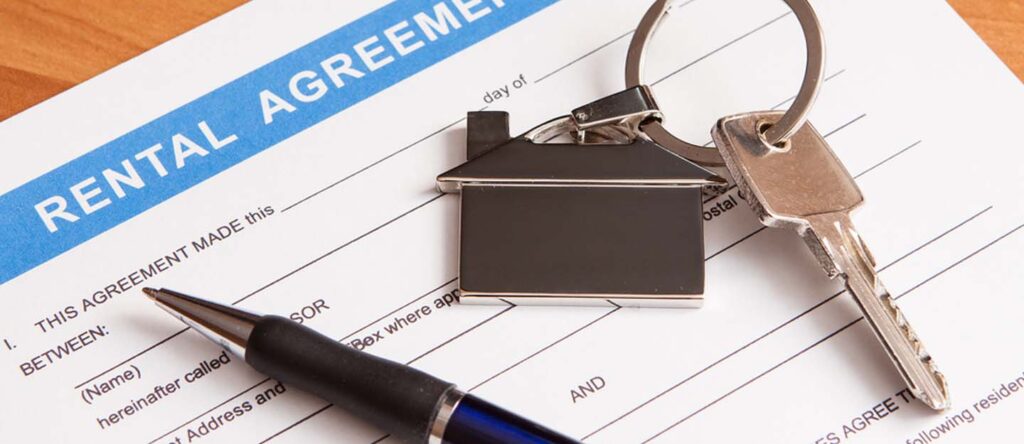Market Analysis and Pricing
Understanding Comparative Market Analysis
One of the most critical factors in selling or renting a property is pricing it correctly. A comparative market analysis (CMA) is a tool used to determine the fair market value of a property by comparing it to corresponding properties in the area that have recently sold or are currently on the market. This analysis considers factors such as size, location, condition, and amenities to accurately estimate the property’s value.
The Impact of Overpricing
Overpricing a property can significantly impact its ability to sell or rent. When a property is priced too high, potential renters or buyers may pass it over to favor something more appealing, which can lead to a lack of demand for the property, causing it to sit on the market for an extended period. Additionally, overpriced properties may be subject to price reductions, which can further decrease their perceived value.
Strategies for Price Reduction
If a property is not selling or renting due to overpricing, several strategies can help reduce the price and make it more competitive. One strategy is gradually lowering costs over time, allowing the market to adjust to the new price. Another approach is offering incentives, such as free rent or a home warranty, to increase the property’s appeal to prospective buyers or renters. Finally, it may be necessary to re-evaluate the property’s value using a new comparative market analysis and adjust the price accordingly.
Setting appropriate property prices is crucial to its success in the market. Understanding comparative market analysis, avoiding overpricing, and utilizing effective price reduction strategies can help ensure that a property sells or rents quickly and at a fair price.
Property Presentation
Presentation is critical when selling or renting a property. A property’s appearance can significantly impact its appeal to potential buyers or renters. This section will cover the importance of curb appeal, staging and interior improvements, and professional real estate photography.
Importance of Curb Appeal
Since prospective renters or buyers will initially see a property’s façade, first impressions count. Ensuring that the property’s exterior is well-maintained and visually appealing is essential, which can be achieved by:
- Adding new paint to the exterior
- Decluttering and removing any unnecessary items
- Making necessary renovations
- Adding amenities such as plants, outdoor lighting, or a welcoming front door
By improving the curb appeal of a property, the chances of attracting potential buyers or tenants increase significantly.
Staging and Interior Improvements
Once the potential buyer or renter is inside the property, it is essential to ensure that the interior is visually appealing and welcoming, which can be achieved by:
- Decluttering and removing any unnecessary items
- Making necessary renovations
- Adding amenities such as new appliances, lighting fixtures, or window treatments
- Rearranging furniture to make a more spacious and inviting feel
Staging a property can help potential buyers or renters visualize themselves living in the space and increase the chances of making a sale or rental.
Professional Real Estate Photography
Getting the most excellent photos for a home online requires high-quality real estate photography. Professional real estate photography can:
- Showcase the property’s best features
- Establish an emotional bond with potential buyers or renters
- Boost the chances of attracting potential buyers or renters
Property owners can significantly improve their chances of making a sale or rental by investing in professional real estate photography.
In conclusion, presenting a property in the best possible light is crucial for selling or renting. Property owners can significantly boost their chances of selling or renting by improving curb appeal, staging, and interior improvements and investing in professional real estate photography.
Marketing and Advertising
The marketing and advertising strategy may be the culprit when a property needs to be sold or rented. Here are some tips on optimizing your marketing and advertising efforts to increase the chances of selling or renting your property.
Optimizing Online Listings
Online listings are among the most essential marketing tools for selling or renting a property. Ensuring that the listing description is accurate and appealing to potential buyers or renters is vital. Use descriptive language to highlight the property’s best features and amenities. Also, make sure to include high-quality photos of the property to give potential buyers or renters a clear idea of what to expect.
Listing the property on multiple online platforms, such as MLS, Zillow, and Craigslist, can increase visibility and reach a wider audience. It is also essential to keep the listing up-to-date and make any necessary changes to the description or photos to keep it fresh and relevant.
Leveraging Social Media Platforms
Effective Offline Marketing Techniques
While online marketing is essential, offline marketing techniques can also be effective. Typical marketing materials, such as flyers and brochures, can help reach potential buyers or renters who may need to search online actively. Holding open houses and inviting potential buyers or renters to view the property in person is also a good idea.
Optimizing the marketing and advertising strategy can increase the chances of selling or renting a property. Combining online and offline marketing techniques, such as optimizing online listings, leveraging social media platforms, and using effective offline marketing techniques, can help reach a wider audience and increase visibility.
Location and Property Features
When selling or renting a property, location, and property features are two of the most critical factors that can seal or break a deal. Here are some things to consider when it comes to location and property features:
Neighborhood and Local Amenities
The neighborhood and local amenities can significantly influence a potential buyer or renter’s decision. A good neighborhood with easy access to local amenities like schools, parks, shops, and restaurants can make a property more attractive. On the other hand, a less desirable location with limited access to amenities can be a turn-off for potential buyers or renters.
Property Size and Layout
Size and layout are critical considerations for a property. An inadequate size or awkward layout may deter potential buyers or renters. It’s vital to ensure the layout is functional and optimally utilizes the available space.
Condition and Age of Appliances
Overall, it is essential to consider location and property features when selling or renting a property. By ensuring that the property is in a desirable area, has a functional layout, and is equipped with up-to-date appliances, sellers and landlords can boost their chances of finding a buyer or renter.
Feedback and Adjustments
Gathering Feedback from Showings
One of the most critical aspects of selling or renting a property is to gather feedback from potential buyers or renters. If there have been few showings or no offers, it is essential to find out why. This feedback can help identify any problems with the property that may be preventing it from selling or renting.
One effective way to gather feedback is to have a feedback form available for potential buyers or renters to fill out after a showing. This form can include questions about what they liked and disliked about the property, any concerns they may have had, and whether they would consider making an offer or signing a lease.
Encouraging the real estate agent to receive feedback from potential buyers or renters is also important. Agents can provide valuable insights into what buyers or renters are looking for in a property and what changes may need to be made to make it more appealing.
Responding to Market Feedback
Following the collection of feedback, it is essential to respond to it appropriately. Adjustments can be necessary if recurring causes for the property’s failure to sell or rent out are present.
One common reason a property does not sell or rent is that it is priced too high. If this is the case, the price may need to be adjusted to reflect market conditions and comparable properties in the area.
Another common mistake is not properly marketing the property. In this case, adjustments can be necessary to the marketing strategy, such as using different channels to reach potential buyers or renters or improving the quality of the property’s online listing.
If feedback suggests issues with the property, adjustments can be necessary to address these concerns. For example, if buyers or renters have expressed concerns about the property’s condition, repairs or renovations may be needed to make it more appealing.
Collecting feedback and making adjustments based on that feedback is essential for selling or renting a property. By being responsive to market feedback, property owners can increase their chances of a successful sale or rental.
Professional Assistance
When a property is not selling or renting, consider seeking professional assistance. Two main types of professionals can help in this situation: real estate agents and property managers.
Choosing the Right Real Estate Agent
When choosing a real estate agent, it is crucial to consider their knowledge, reputation, and local market experience. A new agent may be eager to make a sale but may need more experience or connections to get the job done. On the other hand, a seasoned agent may have a vast network of potential buyers or renters but may need more motivation to put in the effort required to sell or rent your property.
Finding an agent who is a good fit for your specific needs and goals is essential. This may involve interviewing multiple agents and asking for references from past clients. Additionally, clear communication and expectations from the beginning are necessary to ensure a fruitful partnership.
Benefits of Hiring a Property Manager
If you need help renting your property, using a property manager may be a good option. A property manager can handle the day-to-day operations, including advertising, tenant screening, rent collection, and maintenance, which can be especially helpful if you do not live near your rental property or need more time or expertise to manage it yourself.
Additionally, a property manager can offer valuable insights and advice on improving your property and attracting more tenants. They can also handle legal issues, such as evictions or tenant disputes.
Overall, seeking professional assistance from a real estate agent or property manager can be a wise investment if your property is not selling or renting. Choosing the right professional and establishing clear communication and expectations can boost your chances of success and achieve your goals.
Rental-Specific Challenges
Landlords may face several challenges when renting out a property. This section will discuss two of the most significant rental-specific challenges: assessing rental demand and competitive rental pricing.
Assessing Rental Demand
One of the most important factors to consider when renting out a property is the demand for rental properties in the area. Understanding the local rental market and determining whether there is a high demand for rental properties is essential. Landlords can assess rental demand by researching the vacancy rates in the area and the number of rental properties available.
Another way to assess rental demand is by talking to local real estate agents familiar with the rental market. They can provide valuable insights into the local rental market and help landlords determine the appropriate rental price for their property.
Competitive Rental Pricing
Setting the right rental price is essential for attracting tenants and keeping vacancies to a minimum. Potential tenants may look elsewhere if the rent is too high, and the property may sit vacant for an extended period. On the other hand, if the rent is low, landlords can cover their expenses, like mortgage payments, property taxes, and maintenance expenses.
To set a competitive rental price, landlords should research the local rental market and compare their property to similar properties in the area. They can also use online resources, such as rental price calculators, to determine the appropriate rental price for their property.
It is important to note that while rental pricing is essential, it is not the only factor tenants consider when choosing a rental property. Other factors, such as the condition of the property, the landlord’s responsiveness, and the security deposit, can also influence a tenant’s decision.
In conclusion, assessing rental demand and setting competitive rental pricing are two critical rental-specific challenges that landlords must navigate. By understanding the local rental market and researching rental prices, landlords can attract tenants and keep vacancies to a minimum.
Timing and Market Conditions
Timing and market conditions significantly determine the success of a property sale or rental. Understanding seasonal demand and navigating a slow market can help boost the chances of a successful sale or rental.
Understanding Seasonal Demand
The demand for properties varies throughout the year, with some seasons being more favorable than others. For instance, the summer is often a peak season for real estate transactions, as families tend to move when children are out of school during the summer months. On the other hand, the winter season may not be as favorable due to the holidays and the potential for inclement weather.
It’s important to consider seasonal demand when putting a property on the market. Sellers and landlords can take advantage of the increased demand during peak seasons and adjust their pricing and marketing strategies accordingly.
Navigating a Slow Market
In a slow market, the demand for properties is low, and there is an oversupply of properties, making it challenging to sell or rent a property. In such situations, sellers and landlords must be patient and adjust their pricing and marketing strategies accordingly.
One way to navigate a slow market is to offer incentives such as reduced rent or seller concessions to attract potential buyers or renters. Another way is to work with a real estate agent who has experience navigating slow markets and can provide valuable insights and advice.
Market conditions, mortgage rates, pricing, and effective marketing strategies are pivotal in ensuring the success of a property transaction. By comprehending these factors and timing the transaction appropriately, sellers and landlords can boost their prospects of a successful sale or rental.



Preparation for Sale or Rent
Before listing a property for sale or rental, it must be ready for occupancy. It involves decluttering and making necessary repairs to ensure the property is in the best possible condition. The first impression is crucial when selling or renting a property, so ensuring it shows in the best possible way is essential.
The Importance of Decluttering
Decluttering is one of the first steps in preparing a property for sale or rent. It involves removing unnecessary items to make the property look more spacious and appealing. A cluttered property can deter potential buyers or renters, hindering their ability to envision themselves living there.
Decluttering can involve going through each room and removing unnecessary items, such as old furniture, unused appliances, and personal belongings. It is important to remember that less is more when it comes to decluttering. This can help create a more neutral and welcoming space that potential buyers or renters can see themselves living in.
Making Necessary Repairs
Compulsory repairs are another critical step in preparing a property for sale or rent. These include fixing leaks, replacing broken appliances, and repainting walls. A property in good repair can be more tempting to potential buyers or renters and help increase its value.
It is important to remember that overpricing a property can be a common reason for it not selling or renting. It is essential to set a fair price that reflects the condition of the property and the current market conditions. A real estate agent can help establish a property’s fair market value.
In conclusion, preparing a property for sale or rent involves decluttering and making necessary repairs to ensure it comes in the best possible way. This can help create a more appealing space that potential buyers or renters can envision living in.
Frequently Asked Questions
What factors could be affecting the marketability of my home?
Several factors can affect the marketability of your home, including its location, condition, pricing, and marketing. The current state of the real estate market and the competition in your area can also impact your property’s ability to sell or rent.
How does the pricing of my property influence its ability to sell or rent?
Pricing is a critical factor in selling or renting a property. Setting the right price for your property with a real estate agent is crucial; pricing too high may deter buyers, while pricing too low could result in lost revenue opportunities.
What are the common mistakes homeowners make when listing their property?
Common mistakes include inadequate repairs, incorrect home pricing, poor marketing, and failing to stage the home properly. Homeowners should prioritize depersonalizing their property, ensuring potential buyers or renters can envision themselves living there without distractions.
How can the condition of my property impact its appeal to potential buyers or renters?
The condition of your property can significantly impact its appeal to potential buyers or renters. Well-maintained and updated homes are more likely to attract interest and receive higher offers. In contrast, outdated or poorly-condition properties may require significant renovations or restores before they can be sold or rented.
What role does effective marketing play in selling or renting my property?
Effective marketing is essential in selling or renting your property. It helps attract potential buyers or renters and showcases your home’s unique features. Marketing strategies may contain professional photography, virtual tours, and online listings on famous real estate websites.
How important is the location of my property in determining its desirability?
The location of your property is a crucial factor in determining its desirability. Homes in desirable neighborhoods or near popular amenities are more likely to attract interest and receive higher offers. In contrast, properties in less desirable neighborhoods or far from essential amenities may take longer to sell or rent.












